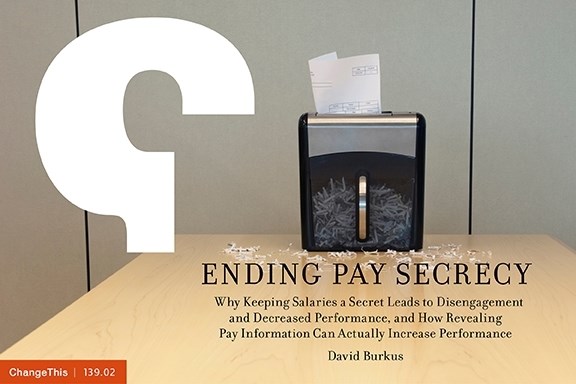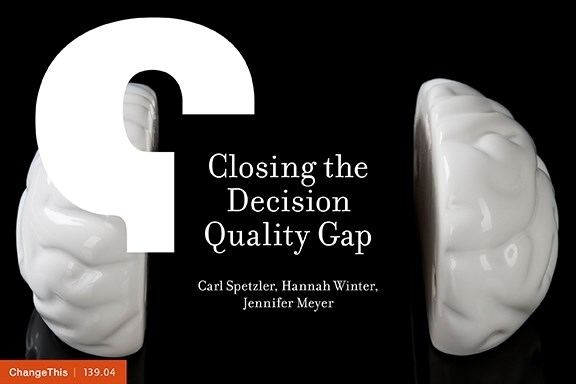ChangeThis RSS
"I know way too many senior people who think they're great leaders because they read lots of leadership books, or who think they're staying abreast of the changes in their industry because they're reading about those changes.
Real learning is almost always at least somewhat uncomfortable. It's challenging. It's figuring out how to operate in new ways; questioning your assumptions; putting new ideas into practice. Real learning takes you out of the tried-and-true, and into that murky, disturbing land of I'm-not-very-good-at-this.
And, I submit to you, that kind of learning is central to our success today."
Continue reading
"Do you know how your pay compares to your peers?
Probably not.
You probably don't talk about it much. Most Americans are more comfortable talking about their sex lives than their salary lives. And most employers are happy to keep that secrecy going. According to a 2011 report from the Institute for Women's Policy Research, about half of American workers said that discussing salary information is either discouraged or outright prohibited. The assumed reason behind these prohibitions is that if everybody knew what everybody got paid, then all hell would break loose. There would be complaints. There would be arguments. There might even be a few people who quit.
But what if secrecy is actually the reason for the strife, and what would happen if we removed that secrecy?"
Continue reading
"One of the virtues of DQ is that it allows us to know if we've made a good decision at the time we are making it. If we've correctly followed the process, we can confidently state that 'We made the best possible choice given our alternatives, the available information, future uncertainties, and the things we can control.' That's contrary to conventional thinking, which confuses a good decision with a good outcome. Most will say, 'We cannot know how good a decision is until we've seen the results." That makes no sense in a world of uncertainty and unforeseeable events that decision makers cannot control. A good decision, for example, might be undermined by poor implementation. Or events on the far side of the world may foil a decision maker's best-made plans. The reverse is also true: a poor-quality decision may have a good outcome thanks to good luck. Imagine someone driving home after too many drinks. Does the fact that he arrived home without causing an accident make his decision to get behind the wheel a good one? Of course not!
All decisions are about the future, but decision makers must act in the present, which is why it's so important to know if we are making a good decision when we are making it. And that is possible when we fulfill the requirements of decision quality."
Continue reading
"We humans love some words because we don't really know what they mean. Therefore, we can throw them around and project whatever we feel is important onto them. Two such ambiguous words that possess an aura of gravitas and perceived importance are authentic and leadership. I am hard-pressed to say one is thrown around more frequently or with more fervor than the other.
Put the two words together and you have the term authentic leadership, which is then vague to the second power. If you listen carefully to the election chatter and everyday conversations, the only thing we know for sure about authentic leadership is that it is a good thing. This presidential election cycle we even have a new vague diagnosis: he or she has an authenticity problem.
This lack of clarity does not serve aspiring authentic leaders. We need a pragmatic definition of authentic leadership that we can work with. That is my goal with this manifesto."
Continue reading
Sure, we'd all love to sit down for a nice 45 minute chat with everyone on the team if we could, but most of us don't even get to do that with the people we love in our life. At work, people are over-busy and overwhelmed. Meetings fill the day, and emails clog our inbox. And there's work to do as well.
Don't despair. Coaching's something everyone can do, do quickly, and do in a way that will have a significant impact on performance and satisfaction. But to make it work for the time-crunched manager, you need to follow three principles.
Continue reading




